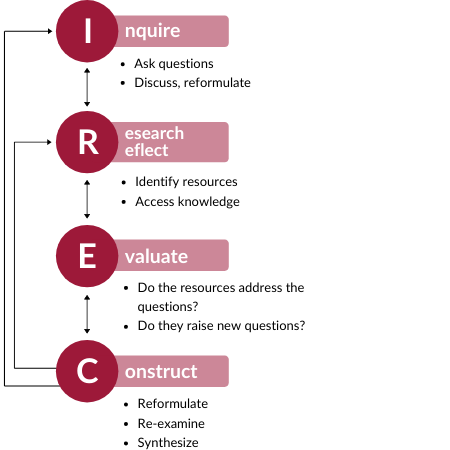Hello David, thank you for your post! I myself did not look into the Open Pedagogy learning style and I found your post very insightful. I find it very interesting how this style of learning operates through the creation of students and allows for a very inclusive, interactive way of learning worldwide. This style of learning sounds like it aligns well with your groups Learning Design and I am looking forward to seeing how you incorporate everything and use OER to enhance your targeted audiences learning experience!
Month: February 2023
Inquiry-based learning goes against the traditional educational style that we as students have experienced throughout our educational careers. In the traditional style of learning, the teacher presents the facts and their knowledge about a particular topic and guides their lesson from there. Inquiry-based learning is a more active, student lead form of learning where the students present the questions, scenarios, and problems to the teacher, with discussion stemming from the students. This style of learning works on the basis of the teacher presenting a general theme and students guiding the lesson from there through their participation and engagement with the theme. Lee et al. (2004) defined inquiry-based learning as “an array of classroom practices that promote student learning through guided and, increasingly, independent investigation of complex questions and problems, often for which there is no single answer.” This style of learning provides the students with support while they learn the important and crucial life skill of self-direction (Queens University, n.d.). A common concept discussed when talking about inquiry-based learning is the acronym “IREC.” This highlights the four essential elements of inquiry-based learning. As described in the image below, “IREC” suggests a structure for the learners that helps guide them through their inquiry-based learning experience, while also allowing students to develop skills around each of these elements, building on to their toolbox of life skills.
Regarding my group’s Learning Design Blueprint, I believe that this style of learning does not fit our blueprint design as our design is a set, structured activity. Although it is set up and allows for questions from young students, it is not designed to be taught through student-led questions and the support of the teacher.

References:
Queens University. (n.d.). Inquiry-Based Learning. Centre for Teaching and Learning. Retrieved February 8, 2023, from https://www.queensu.ca/ctl/resources/instructional-strategies/inquiry-based-learning#:~:text=What%20is%20Inquiry%2DBased%20Learning,by%20themselves.%20Lee%20et%20al.
Recent Comments